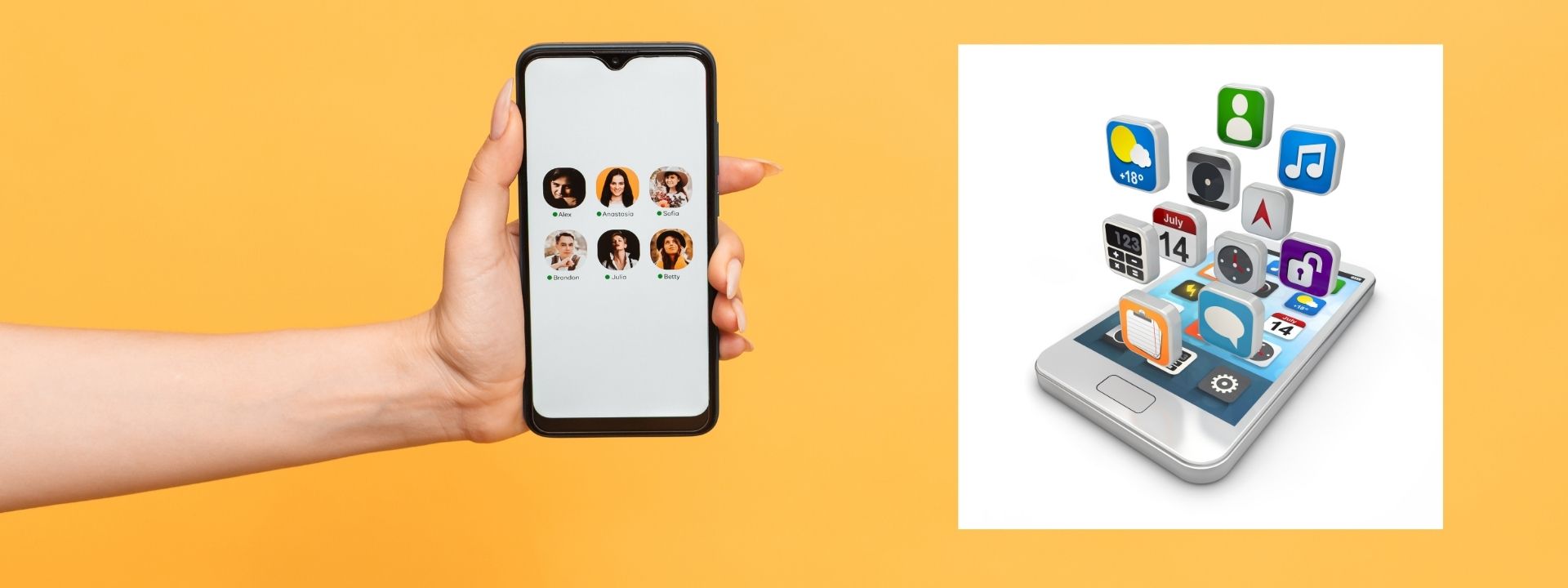
Top Tips to Protect Your Privacy on Apps
The internet is a scary place, and if you don’t know what’s going on with your personal information then it probably won’t be long before someone else does. The way we find everything online makes this even more dangerous – there are no limits or boundaries anymore; all our pasts can come back at any moment.
Your personal data is worth more than you might think. We live in an age where advertisers can access our personal information to make decisions about what kind of ads will appeal most effectively, hackers attempt identity theft by accessing electronic devices with malicious intent; there are many avenues for abuse if one does not take steps now.
Worried about your privacy when you’re using apps on your smartphone or tablet? Our latest blog would inform and educate you on what you need to know, be aware when installing apps as well as secure your devices online.
Your Privacy on Mobile Apps: What Do Your Apps Know About You?
Have you ever wondered what can you do to protect your privacy when using apps on the go? You have options, but they may not be easy. Knowing about privacy settings on apps is particularly important. When you download an app, it often requests permission to access personal information like contacts and location as well camera shots or video clips from your device in order for the application to function properly – but be aware that these same companies may share this sensitive data with other third parties outside of just how they’re using them within their own applications.
What do I need to know before installing an app on my phone?
Follow these steps below before you install an app, so you can better protect privacy
- Use official app stores. When downloading apps, make sure you only get them from official sources. Avoid third-party stores that may contain malware or harmful code and always research the developer of an app before installing it on your device. The only way to ensure that your device has all necessary updates is by using an official app store.
- Know what information the app will be able to access. Privacy is a huge issue in this day and age, so be sure to read through the privacy policy before downloading an app. Be sure that your information won’t end up being shared with any other companies or people who may want it.
- Check out the permissions. To use many of the features on your phone, apps need permission to access personal information. You may be asked for this when downloading or while using an application first time around – it’s important that you know what kind of data is being requested so as not give out too much without knowing exactly how they’ll use its value. Pay close attention to the permissions the app requests. For example, does it really need to access your location or photos to do its job?

How do you secure the Privacy of Apps you already have?
1. Review the App’s Permissions. Make sure the application (app) doesn’t have access to information or features it doesn’t need. If an unnecessary permission has been granted, consider deleting that particular application from your phone and installing another one with fewer requirements for accessing data on behalf of third parties like advertisers who use these apps in order to advertise their products via commercials during television programs watched remotely by viewers all over World Wide Web. Pay special attention to apps that have access to your contact list, camera, storage, location, and microphone.
2. Limit location permissions. You can limit the location services for some apps so that they only have access when you are using them. This will help protect your privacy and ensure accuracy of data, which is essential in today’s world.
3. Don’t automatically sign into apps with a social network account. Signing into an app with your social network account information often lets the app collect information from your social network account and vice versa. If you aren’t OK with that, use your email address and a unique password to sign in.
4. Keep Apps Updated. Hackers are always looking for new ways to get information that they can use against you. Make sure your device is up-to date by installing app updates as soon as they are available.
5. Delete Apps you don’t need. If you’re not using an app, delete it to avoid unnecessary data collection. By doing this, it also frees space on your phone and battery life.
We hope that this article has helped you understand how to protect your privacy on apps. Remember, it is important to be aware of the permissions you are granting an app and to only use trustworthy apps. If you have any questions or concerns, please reach out to us for help.
About CITSYS | Secure, Support and Grow Your Business
CITSYS is an Information Technology company that collaborates with the worlds most trusted technology brands to provide you with high quality software products and solutions to secure, support and grow your business. Our sole purpose is to take care of your IT needs while you focus on you core business so you can maximize productivity and grow your profits.
Every day in Ghana, our solutions and services directly impact over 40,000 computer users: with ESET, Kaspersky, OPSWAT, Panda, SentinelOne, Sophos, Microsoft, Azure, Mimecast, and Darktrace – among others.
We support businesses with staff strengths of 5 – 10,000 staff. Since 2007, CITSYS has provided enterprise security solutions and IT support to over 120 businesses in Finance, Health, Education, Media, NGO, Retail, and Government institutions.
Tag:Privacy, slow phone

